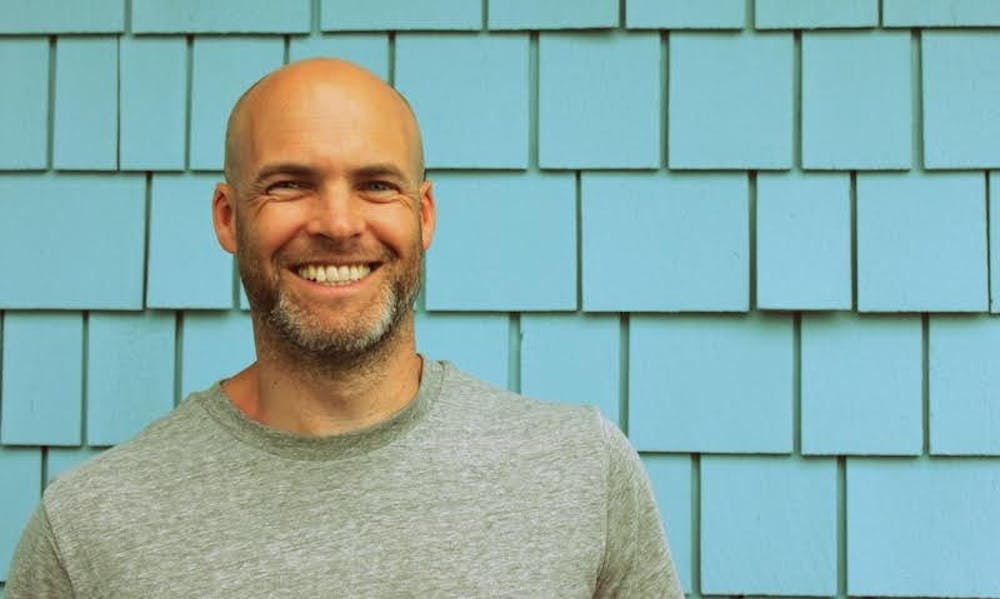Shawn Humphrey, associate professor of economics at the University of Maryland, is a man of hard work, mobilizing grassroots movements on a budget and “do-gooding” in business.
Thursday, Sept. 24, he will share his personal pedagogy of “Tribal Teaching” — an entrepreneurial approach involving student autonomy, authority and responsibility — “Do-Goodernomics” and microfinance, or the financial services to low-income individuals, with Elon University students.
Humphrey has worked with Elon students in the past. In 2012, he met with students at the “Poverty Action Conference,” a conference where students present their projects to eradicate global poverty.
Elon students also participated in his “Two Dollar Challenge,” for which they attempt to live on $2 a day for a week to simulate what a life in poverty is like. The challenge pushes for an alternative way to fill the gap between the rich and poor.
“I’ve had a crush on Elon for a while,” Humphrey said. “If there was ever a place I could work at, it would be here. Both the professors and students are wonderful.”
A “Game of Loans”
Humphrey will be giving a talk while at Elon. Before that, he will lead an experiential learning simulation in the seminar for the Winter Term course “Buisness and Culture in Latin America” with Mark Kurt, associate professor of economics, as part of his “Tribal Teaching” pedagogy.
Kurt was approached by Kevin O’Mara, professor of management, who asked him if he had any interesting classes for Humphrey to assist. Since the Winter Term course has a focus on microfinance in Cuba, Kurt thought he would be the perfect guest.
“I’ve seen him speak before,” Kurt said. “[Humphrey] does a good job at deconstructing microfinance or anything else he’s talking about. I think [the talk is] going be interactive, I think it’s going to be fun, and I think students are going to have a greater appreciation of why we do good.”
The simulation, called “Microfinances: Game of Loans,” involves assigning each student to a household with two low incomes — one that’s more steady and one that’s erratic. Each household must use its income to pay for necessities and education.
Then each household experiences a shock, such as a fire or a medical issue, and they must deal with the burden.
“It gives students insights into the economic complexities of the poor,” Humphrey said. “How [those with low-incomes] manage day-to-day. It’s an intense, engaged and active tool.”
Humphrey is also giving a talk to students at 6:30 p.m. Sept. 24 at the Innovation House, located on the corner of South Holt Avenue and West Trollinger Avenue, called “Do-Goodernomics: A Merciless Market Analysis of Our Motivation to Do-Good.”
The talk is part of a series that he has given at various universities and conferences and focuses on the motives behind “doing good” in economics. In the talk, Humphrey discusses why or why not wealthy individuals help those in poverty and which models work to better assist and incorporate those with lower incomes into the economy.
According to Humphrey, companies like Toms Shoes, which gives away a free pair of shoes to those in need for every pair purchased, are actually undermining local shops in the area where shoes are being donated and helps to continue the poverty cycle.
“It’s an uncomfortable talk,” Humphrey said. “We kind of signal that we have too much goodness and that sometimes has unintended consequences. [My team and I are] trying to change the way [students] do good.”
Tribal teaching “do-gooders”
Humphrey’s passion stems from his belief that everyone has a role to play in ending the poverty cycle.
His program, “Tribal Teaching,” can be found on his website, tribalteaching.org, and lays out how students need to reactivate the creativity and fearlessness they had as children, going beyond the system of expectations they have as entrepreneurs.
It is structured around creating a world-changing project and learning from it.
“People will learn with experiential learning,” Humphrey said. “It’s an alternative narrative to how we’ve been brainwashed in poverty. We think that we are the heroes, but we’re actually the sidekicks. How do we know we can instruct others when we’ve had different experiences.”
According to Humphrey, the cycle of poverty has been the same year after year, but microfinance has the power to change the cycle.
“We need to rethink ways we can resolve our problems with poverty,” he said. “It’s going be us on the sidelines, not leading this progress. I need to get this message out. I believe it’s a better alternative.”


